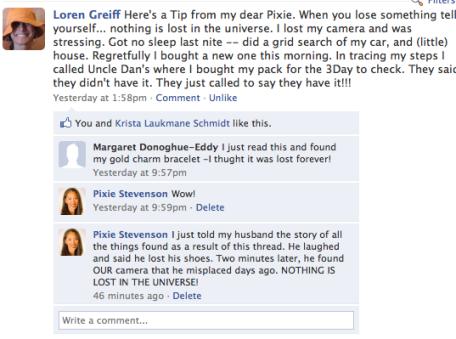|
HEALING SESSIONS
$50 - 30 Mins. Massage Session
$80 - 60 Mins. Massage Session
$125 - 90 Mins. Massage Session
$150 - Cacao Session, 90 minutes of one-on-one life coaching, massage therapy and energy healing while sipping warm ceremonial cacao to open up your heart chakra.
PACKAGES
$199 - Neck, Back & Shoulder Package
- 3 - 30 Mins. massages focused on your arms, shoulders, neck and upper back.
- 1 - 60 Mins. massage
3 Packs - Save 10%
$135 - 30 Mins. Massage (Save $15, Reg. $150)
$215 - 60 Mins. Massage (Save $24, Reg. $240)
$325 - 90 Mins. Massage (Save $50, Reg. $375)
6 Packs - Save 20%
$240 - 30 Mins. Massage (Save $60, Reg. $300)
$400 - 60 Mins. Massage (Save $80, Reg. $480)
$625 - 90 Mins. Massage (Save $125, Reg. $750)
Mayan Ceremonial Grade Cacao
Feel your heart chakra open and your energy renew when sipping Mayan ceremonial grade cacao imported from Guatemala by Keith's Cacao. Cacao is a super food in and of itself but combine it with massage and energy work and you'll experience a deeper healing. Invidual cacao sessions involve sipping a cup of freshly brewed cacao imbued with intentions set just for your personal healing. After the cacao has begun to work its magic, you will also receive bodywork and energy work combined with personal spiritual coaching to lead you into your deepest potential of healing.
Add Cacao + $10 to any one session
 CACAO CEREMONY, Special Introductory Price $200.00 CACAO CEREMONY, Special Introductory Price $200.00
. . . for up to 8 persons. Invite 7 of your friends to experience the magic of a personalized cacao ceremony. Mayan ceremonial grade cacao is brewed with hot water, Cinnamon, ginger and other spices while being gently imbued with the love and light of healing intentions for your group. Sip warm cacao while learning the story of how cacao came to us on Oahu. The healing power of cacao will open up your heart chakra for a deeper healing.
$25 for each additional person over 8. Perfect for a girls' night gathering.
|
 |
Pixie's Blog
|
 |
|
Saturday, August 29 2009
 When you're in a dysfunctional relationship with someone who is manipulative or an alcoholic/addict, you may find yourself repeatedly in a conflict that you were determined to avoid! Then once again you feel anger, anxiety, or depression. "What happened?" you ask yourself. "How can I be here again?"
Alcoholics/addicts and manipulative personalities know how to fish. Any good fisherman takes a tackle box full of extra hooks, lures, lines, and sinkers. Upon arriving at the lake, the fisherman attaches a hook and the lure he thinks the fish will like best. After a while, if the fish aren't biting on the first lure, the fisherman changes the bait. He changes the bait until he finds something the fish will bite or he gives up. So it can be with conflict-ridden relationships.
Years ago I was dating a man who bought a house. The house was mostly empty except for a few bare essentials in furniture. He commented that he needed to get more furniture and some things for his house. I offered to go furniture shopping with him but he rejected the offer. I argued for a while, trying to get my way, but he adamantly rejected the idea. My feelings were hurt but I accepted what he wanted.
A couple of weeks later we repeated the pattern. He started talking about decorating his house and invited me to discuss it. I offered to help him. He rejected the offer. We argued until I gave up. Again my feelings were hurt.
The next time he invited me to the house decorating discussion, I kept silent. He continued the dialog by himself and I just listened. For a moment he was confused but kept talking about buying furniture.
After a while, he changed the subject to something I couldn't resist - picking out art. He asked for my opinion. Excitedly, I jumped from where I was sitting to the love seat, where I could sit close to him. I offered to help him. He firmly said, "no." I was stunned, hurt, and speechless.
He changed the bait! He was so clever that he changed it to something I couldn't resist. I swallowed the lure like an eager fish. All he had to do was reel me in.
What is the solution? Don't expect a fisherman to quit fishing. That's what he does. Just become a smarter, less hungry fish.
Photo courtesy of Bob Jagendorf on Flicker.com
Monday, August 24 2009
A couple of things started this series of blog posts about difficult bosses. One was working with a friend who had a difficult boss. The other was listening to podcasts of The McCarthy Show about Boss/Employee Relationships. Jim & Michele McCarthy, in an intelligent and humorous way, discuss the characteristics of the "perfect boss".
The second part of the Serenity Prayer is "courage to change the things I can". Reframing our own expectations is part of that change. It's not about being right or wrong. It's about moving a little to the left or to the right, to see things from a different perspective. The McCarthy podcasts are about changed perspectives. I don't know about you but change takes courage for me!
Here's a short list of what was mentioned in the first podcast about Boss/Employee Relationships. The perfect boss:
- Only pays attention to those who get results.
- Is an adult who believes in the individual's responsibility for personal welfare.
- Arranges for you to have a paycheck.
- Pay according to merit.
- Doesn't listen to gossip or complaints about someone.
- Invites you to leave if your job is painful to you.
- Expects you to work (produce results) and communicates his expectations clearly.
- Does not reward trying, only rewards results.
- Prefers status updates to waiting or asking for permission.
- Is always too busy for a crisis and never too busy for connection.
You really have to listen to the podcast to hear Jim & Michele sharing this information. After listening to the podcasts, I talked to Michele McCarthy about it to confirm my understanding of what was being said.
My summary: The perfect boss doesn't reward you for your feelings. The perfect boss cares about what you do. A perfect boss expects you to show up for work to do a job and get results. The perfect boss is an adult and expects you to be an adult.
If you have identified any role you may be playing in a relationship with difficult dynamics and have taken steps to change that role, then it's time to talk about how to cope with a boss who is not the perfect boss.
Friday, August 21 2009
Remember the Serenity Prayer? It totally applies to a relationship with a difficult boss.
Grant me the serenity to accept the things I cannot change.
Courage to change the things I can.
And the wisdom to know the difference.
Now it's time to put that Universal Principle into action on the job. What do you need to accept that you cannot change? You cannot change your boss. You can teach them how to treat you after you are certain that your side of the sidewalk is clean. Is it?
- Do you show up for work on time with a good attitude prepared to work?
- Do you spend your day being productive or getting results?
- Have you learned to resolve your feelings?
- How much time do you spend surfing the internet?
- Playing solitaire? Personal phone calls?
- Gossiping or complaining?
- Do you give your employer a dime for his nickel?
- Do you show up for work to see what you can give rather than what you can get?
Years ago when I worked in law firms, I was always surprised when I walked up behind another staff member to find him playing solitaire on the computer. I had a heavy work load and multiple deadlines. I didn't even know where the games were on the system. Yet I could not judge or criticize. My slate was not totally clean. I made personal phone calls.
In another firm one of the staff members was very social. Her role in that firm was one of counselor and adviser to the other staff members about their personal problems. Their continued visits to her desk disrupted the work flow and her productivity. Her boss asked her to stop visiting so much. She was outraged and hurt. It wasn't her fault. What was she supposed to do?
In both cases it was not unreasonable for the boss to ask for more productivity and less personal business on his time. In my instance, all I needed to reduce the personal phone calls.
In the other person's case, she needed to set boundaries around her time at work with a simple, "I'm in the middle of something. Can we discuss this later?"
If you're sure you're doing a good job, not bringing your old personal wounds to work, and being a good employee, the next post is about helping you reframe your idea of the characteristics of a perfect boss.
Wednesday, August 19 2009
Seeking support is a means of gaining a different perspective on dealing with a difficult boss. I don't mean sitting around the break room complaining or gossiping. You know who to talk with get sympathy. Who do you talk with to get solutions?
If you can't identify your role in the relationship dynamics with a difficult boss, ask for help. There are professional coaches, counselors, consultants, ministers, psychologists - a wide range of professionals who can objectively help you identify your role and work with you to develop new behaviors to help you cope with conflict in the workplace. Choose who attracts you the most.
In an office environment, I worked in law firms, usually in high responsibility secretarial or legal assistant positions. The characteristics of the type of bosses I worked with were manic, driven, and demanding perfectionists. It takes a certain type of personality to become an attorney and it takes a certain type of personality to support one.

One of the things I learned about myself was through Carolyn Myss's book, Sacred Contracts. In the back of that book is an index of different archetypes characteristics. One of my archetypes was that of a Sidekick: someone who provides support for another person of greater power. I immediately got a resentment when I identified with that archetype but it perfectly explained my vocation at the time and why I was good at it.
If you need more information or support in finding what role you play in difficult dynamics with a boss, feel free to contact me.
Photo courtesy of Larlo from Flickr.com.
Friday, August 14 2009
Your life is right now! It's not later! It's not in that time of retirement. It's not when the lover gets here. It's not when you've moved into the new house. It's not when you get the better job. Your life is right now. It will always be right now. You might as well decide to start enjoying your life right now, because it's not ever going to get better than right now--until it gets better right now!
--- Abraham
Wednesday, August 12 2009
If you're feeling like a victimized by a difficult boss, the first place to look for a solution is within yourself. Remember, according to the Law of Attraction, we attract experiences and relationships that help us grow.
The last post, Get Your Unreasonable Boss Right-Sized, was an exercise in helping you change your perspective and to level the playing field in your mind. Some things look better from a distance. Moving back emotionally allows you to put some spiritual space between your and a difficult situation. From that point, it's time to take a deeper look at you.
- What are your expectations of your boss?
- Does (s)he remind you of one of your parents?
- Are you replaying a childhood role in your relationship?
- Are your boss's expectations really unreasonable?
- What lessons are you supposed to learn from this relationship?
If your boss hurts your feelings, it's time to put one of the most valuable recovery principles into action: "It's a spiritual axiom that any time I am disturbed, there is something wrong with me." What is it?
- Is it my personal insecurity?
- Is it fear of losing my job?
- Is it my pride; do I have a problem with authority?
- What is it that if I would release it, I would be free?
- Again, how is this relationship meant to help me grow?
Friday, August 07 2009
 This is a little interlude in the Boss Series to share some the simple principle that nothing is lost in the Universe. How many times have you lost your car keys, a necklace, or something else; launched into a frantic search and never found it? Would you believe it's the "frantic" part of the search that keeps things lost?
During a discussion with my friend, Loren Greiff, of NorthshoreInsider.com, she mentioned that she lost her camera. She retraced her memory path but couldn't find it so she bought a new camera.
I shared with Loren that " nothing is lost in the Universe"*. Just because we can't see it doesn't mean it's lost. Then I told Loren a story. Years ago when I was attending Columbus State Community College for massage therapy, I lost my wallet. After retracing my memory path, the last time I remembered seeing it was in the back parking lot of the college. Immediately, I started thinking, "nothing is lost in the Universe. Nothing is lost in the Universe!" Then let it go. The next morning I parked in my usual spot. No wallet was to be found. The next logical step was to go to the lost & found department. While I was standing in line at student services to ask about my wallet, my cell phone rang. They were calling me to say they had my wallet. It was returned with everything in it - even the money.
Back to Loren. Here's the thread from FaceBook:

Later I received a message that said that another friend of Loren's friends found something important to him.
If you pick up on this thought, NOTHING IS LOST IN THE UNIVERSE, and something amazing happens for you, please leave a comment and tell us your story.
*A lot of people may want to take credit for this affirmation. I can't. I can't even remember if I first learned it from Louise Hay, What the Bleep, Emmett Fox, religious upbringing, Carl Jung or in a chemistry class when I learned that energy can neither be created nor destroyed.
Photo courtesy of Higgett, Flickr.com
Thursday, August 06 2009

One of the first tricks to learn when coping with tyrannical behavior from your boss is to get him right-sized in your mind. You can never assess a situation clearly when you’re filled with anxiety and panic.
Chances are that if your boss’s behavior is unreasonable with you, it’s unreasonable with others too but if you’re in the direct line of fire, you can receive the brunt of her sarcasm and anger. If you feel like a victim, then you’ve perfectly aligned with someone to perpetuate that feeling.
Year ago I worked for a brilliant director in a company whom I really liked on a personal level. At work it was a different story. When he was happy, the whole office was happy. If he was stressed, he was irritable and demanding. The entire office would tip-toe around his bad mood until it passed.
Since I was in the direct line of fire, most of his irritability came at me full force. When my boss was stressed, all signs of civility disappeared. Each task was given to me in a rush. Any mistakes I made were met with derision and anger. At the beginning of the relationship, I coped with his bad moods by meeting them head on. Later in our relationship, I went through a life changing event that left me vulnerable and defenseless to any attack from anybody, not just my boss.
Instead of coping with the stress of the job and his stress like an adult, I would cower and internalize the stress as my personal pain. He had not changed. I had. To tell the truth, the workplace was not the only area of my life where I felt like a victim. I was in victim mode. If I was to continue working with my boss, I had to develop new coping skills. The first one I learned was to get him right-sized in my mind.
A friend suggested I imagine him in a diaper. Well that may have been appropriate because his behavior was often similar to a two year old’s tantrum, but the visual was a little repulsive to me. I had to find something that worked for me.
Eventually, I settled on a popular Bud Light commercial that depicted two bearded men dressed in flowery dresses and hats pretending to be women so they could get a beer during ladies’ night. Ever time my boss would act inappropriately, I would envision him in a hat and dress. That little trick helped take the edge off the panic I felt every time I thought I was being attacked. Later the relationship changed and I once again was able to interact like an adult. He had not changed. I had.
My challenge to you is to find a means to get your boss right-sized in your mind. This doesn’t mean to criticize and judge your boss, it means to find a mental image that is less threatening to you.
Photo courtesy of T Buchtele via Flickr.com.
Thursday, August 06 2009
Stressful work relationships can drain us mentally, emotionally, and physically in the same manner that our personal relationships can. Think about it, if you work 9:00 a.m. - 5:00 p.m., five days a week, you probably spend as many waking hours with the people at work as you do with the people at home. If you're stressed out at work, that often bleeds over into your home life. If you're stressed out at home, that spills over to your career. The question is - what are you going to do about it? What can you do about it?
In the post, Relationships and the Law of Attraction, we said that we attract all our relationships to help us grow and that repeating patterns of relationships are signals for us to look inside to see where we need to change.
What about your boss? What about that other secretary or assistant that creates conflict? What about the IT person who makes you feel stupid? What lessons could those relationships possibly hold for you?
Syliva Lafair in her book, Don't Bring It to Work, says that our behavior at work is motivated by childhood behavior patterns. Even into adulthood, we live up to the labels we were given as a child:
- Smart One
- Pretty Girl
- Weak One
- Funny One
- Bad One
- Compliant One
- Industrious One
- Social One
Lafair then discusses 13 common character pattern that evidence in the workplace:
- Super-Achiever
- Rebel
- Procrastinator
- Clown
- Persecutor
- Victim
- Rescuer
- Drama Queen
- Martyr
- Pleaser
- Avoider
- Denier
- Splitter
Lafair outline how our childhood patterns replay themselves in our roles at work. She suggests as a solution that we should discover our own patterns and own them in an safe environment so we can turn those character defects into assets in our workplace. Read the book and everything will be well, right?
I don't know about you but usually when I read a book like this I can immediately see someone else's behavior. It takes a little more digging to see my role in a relationships. Meantime until I change that core belief that's driving my role, I have to develop defenses and strategies to maintain my sanity and integrity.
I was a Victim, Rescuer, and Martyr in the workplace. To play those roles, I always had to attract a Persecutor, another Victim, and a Super-Achiever. In the next series of posts, I'll share insights and stories related to how I coped and changed within the workplace.
Do you work with someone who fits into one of those personalities? Can you see yourself? What have you done to cope and change?
Wednesday, August 05 2009
 Things are going really well in my marriage. Thanks to my husband's new girlfriend, a John Deere tractor complete with belly mower, front loader, and bush hog.
When she first came to our farm, his excitement was obvious. He learned how to turn her on, rev her up, and make her purr. Even now a couple of weeks later, chores magically appear that need the help of a tractor.
Am I jealous? Not in the least little bit! He's so happy with his tractor that all that positive energy spills out to me! I'm basking in the light of second hand love.
How many times have you wanted someone else to make you happy? Danced through fire to make someone else happy? Or felt jealous because his happiness came from playing golf?
People take different roads seeking fulfillment and happiness. Just because they're not on your road doesn't mean they've gotten lost. ~H. Jackson Browne
Monday, August 03 2009
 Today I ran into a friend who recently retired at an early age after 28 years of government service. He talked about part-time jobs that he had tried; what worked and what didn't.
"It sound to me like you're bored," I said.
He nodded his head in agreement and added that the extra money would be nice to have.
"What would you do if you could do anything, ideally?" I asked.
Without hesitation my friend answered, "Wood working."
"Have you done any work with wood before?"
"Yes," he answered, the energy rising in his voice. "I have all the equipment and a shop. Someone even asked me to make a coffee table and end table but I made a mistake." His voice began to lose energy. "I placed the router in the wrong place. It put a gouge in the wood that I filled in with sawdust and wood glue, but they didn't want the coffee table any more. I haven't been out to my shop for a long time."
"You've stopped because you made a mistake?" I asked.
"I know. I know." He said.
The meeting we were sitting in began and the conversation ended. After the meeting he probably avoided me just like he was avoiding making another mistake on the way to realizing his dream.
That conversation made me think. Made me look at myself.
How many times have I not followed a desire or a dream because I made a mistake along the way? When did that change for me? When did it become okay for me to make mistakes because I understood that life is all about the practice? What excuses do I use now not to follow my dreams or to succeed in using my gifts?
|
| |







 CACAO CEREMONY, Special Introductory Price $200.00
CACAO CEREMONY, Special Introductory Price $200.00
 When you're in a dysfunctional relationship with someone who is manipulative or an alcoholic/addict, you may find yourself repeatedly in a conflict that you were determined to avoid! Then once again you feel anger, anxiety, or depression. "What happened?" you ask yourself. "How can I be here again?"
When you're in a dysfunctional relationship with someone who is manipulative or an alcoholic/addict, you may find yourself repeatedly in a conflict that you were determined to avoid! Then once again you feel anger, anxiety, or depression. "What happened?" you ask yourself. "How can I be here again?"
 This is a little interlude in the Boss Series to share some the simple principle that nothing is lost in the Universe. How many times have you lost your car keys, a necklace, or something else; launched into a frantic search and never found it? Would you believe it's the "frantic" part of the search that keeps things lost?
This is a little interlude in the Boss Series to share some the simple principle that nothing is lost in the Universe. How many times have you lost your car keys, a necklace, or something else; launched into a frantic search and never found it? Would you believe it's the "frantic" part of the search that keeps things lost? 

 Things are going really well in my marriage. Thanks to my husband's new girlfriend, a John Deere tractor complete with belly mower, front loader, and bush hog.
Things are going really well in my marriage. Thanks to my husband's new girlfriend, a John Deere tractor complete with belly mower, front loader, and bush hog.  Today I ran into a friend who recently retired at an early age after 28 years of government service. He talked about part-time jobs that he had tried; what worked and what didn't.
Today I ran into a friend who recently retired at an early age after 28 years of government service. He talked about part-time jobs that he had tried; what worked and what didn't. 



